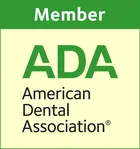Thumb Sucking: A Calming Aid or a Harmful Habit?

- posted: Jul. 14, 2022
Pacifiers are most parents’ go-to tool to soothe a fussy baby. When children don’t have a pacifier, thumb-sucking is a natural reflex that kicks in to help them self-soothe. Humans start sucking their thumbs in the womb. This comforting habit promotes relaxation in stressful situations and induces sleep. However, if your child carries on their thumb-sucking tendency into elementary school, the constant pressure on the upper teeth can lead to preventable misalignments.
Thumb Sucking & Oral Development
Thumb sucking can cause various issues related to oral development once the permanent teeth erupt. If thumb sucking continues into elementary school, it can cause the front teeth to push out, and change the shape of the jaws and roof of the mouth. This irregular oral development can result in speech issues, improper bite alignment, buck teeth, and other oral problems.
Pacifiers have the same oral effects as thumb sucking. However, it is typically easier to wean children off pacifiers because parents can physically remove them from the child. The thumb is always easily accessible to the child, making monitoring the habit challenging.
Kicking the Habit
Most kids end the habit on their own between ages 2 and 4. At this stage of childhood, kids spend more time exploring their surroundings, which naturally distracts them from their thumb. The American Dental Association states that if a child does not stop sucking their thumb by age 4, their parents should start discouraging the tendency.
Tips for A Smooth Transition:
- Praise your child for not sucking their thumb rather than scolding them when they do it.
- If your child is sucking their thumb due to anxiety, focus your energy on comforting them or removing them from the situation to ease their nerves.
- Reward your child when they don’t suck their thumb in difficult situations where they previously would.
Extreme parental pressure to stop thumb-sucking can be more damaging than beneficial. Parents are advised to stick to positive reinforcement to gently break the pattern. Most children do best when they are weaned off thumb-sucking. Encouraging the child to only participate in the habit before bedtime and naps is a good place to start. Children often suck on their thumbs when they are nervous. Teaching your child an alternative coping mechanism to self-soothe, such as deep breathing, will make their transition easier.
If your child is struggling to kick the habit despite your best efforts, talk to their dentist. Custom oral appliances can be placed to physically prevent the child from being able to suck their thumb. Their dentist can also explain the consequences of sucking on their thumb in an age-appropriate way. Sometimes hearing this information from an adult that isn’t their parent goes a long way for kids.
Our Location
Stacy L. Davis, DDS
14062 Us Highway 23 Ste B
Waverly, OH 45690, US
9:00 am - 5:00 pm
10:00 am - 6:00 pm
9:00 am - 5:00 pm
10:00 am - 6:00 pm
Closed
Closed
Closed


